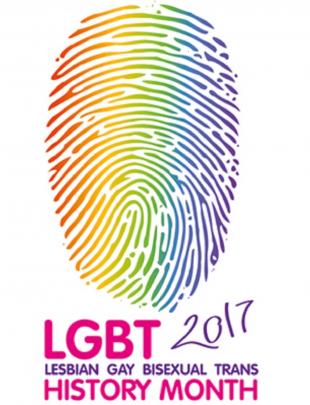The Wiener Library and Holocaust Research Centre at Royal Holloway, University of London are pleased to co-host a special lecture by Professor William Spurlin for LGBT History Month. This lecture provides a contextual overview of the experiences of gay men and lesbians under National Socialism, especially the ways in which the Nazi regime targeted homosexual men, and the varying degrees of tolerance and actual persecution directed by the regime toward lesbians. However, the surveillance, management, prosecution, and punishment of same-sex affectional and erotic bonds must be understood in relation to the evidence of juridical laws and practices and their precedents in German cultural history, such as Paragraph 175 and its subsequent revision by the Nazis, as well as the perceived threat of homosexuality to racial and national fantasy, the family, reproductive and population politics, and the elimination of so-called social degeneracy. This means that Nazi homophobia, rather than being a separate axis of power, was part of a larger system of social and cultural organisation and was an effect of historically specific cultural, material, and ideological conditions.
At the same time, however, the historical record alone is not sufficient; feminist scholarship has already indicated that Holocaust research in general has not paid sufficient attention to the unique experiences of women under Nazism until recently given a (hetero-)masculinist bias in the narration of Holocaust history and a reluctance to address new questions, as well as elisions and ambiguities, in the interpretation of historical records and sources. Asking new questions about sexuality, for example, helps contest the prevailing notion that lesbians were not as systematically persecuted as gay men because lesbian sex was not specifically criminalised in the Reich Penal Code. This denies the historical fact of lesbian existence under National Socialism and lesbians’ lived experiences of displacement, forced migration, separation from lovers, and actual persecution and deportation.
Given that Nazi homophobia must not be reduced to a momentary aberration in history, the lecture will conclude by addressing the ways in which homophobia continued to find expression in the post-war criminalisation of homosexuality in both the former West and East Germany, as well as the failure to recognise more broadly across Europe the crimes perpetrated against gay and lesbian victims of Nazi atrocities. By illuminating the ways in which homophobia intersects with other forms of domination and continues to shape contemporary society and culture, and by approaching historical sources of the period with new questions about sexuality and gender, we deepen the meaning of the Holocaust and help shape its ongoing significance.
William J Spurlin is Professor of English and Director of Teaching and Learning for Arts & Humanities at Brunel University London. Previously, he was Professor of English at the University of Sussex, where he directed the Centre for the Study of Sexual Dissidence & Cultural Change for five years (2006-2011). Professor Spurlin has written extensively on the politics of gender and sexual dissidence and is widely known for his work on queer theory. His latest monograph, Lost Intimacies: Rethinking Homosexuality under National Socialism (2009), uses queer theory as a hermeneutic tool with which to read against the grain of hetero-textual narratives of the Holocaust and as a way for locating sexuality at its intersections with race, gender, and eugenics within the National Socialist imaginary. His book also challenges prevailing assumptions in the received scholarship that lesbians were not as systematically persecuted by the Nazis. The research for Lost Intimacies was funded by the Arts and Humanities Research Council (AHRC), and the book is widely cited and has been reviewed in such journals as Men and Masculinities; German Studies Review; Internat
LGBT History Month Talk: The Persecution of Gay Men and Lesbians under the Third Reich: (Re)-Examining the Historical Record and the Continued Effects in the Post-War Years
The Wiener Library, 29 Russell Square, London

Ad
Event has ended
This event ended on Thursday 9th of February 2017
This event ended on Thursday 9th of February 2017
Admission
Admission free but visit The Wiener Library website to reserve tickets
Admission free but visit The Wiener Library website to reserve tickets
Tags:
Workshops
User Reviews
There are no user reviews
